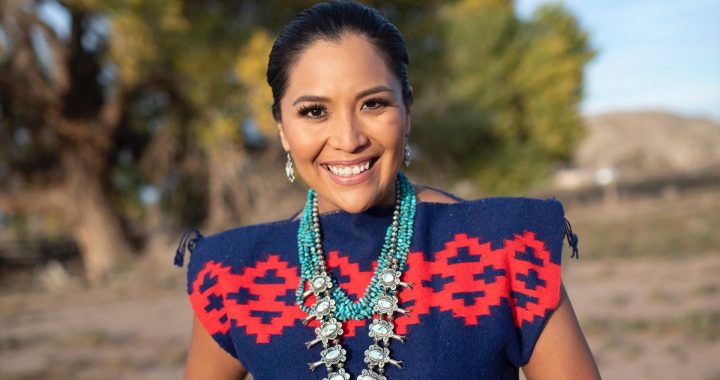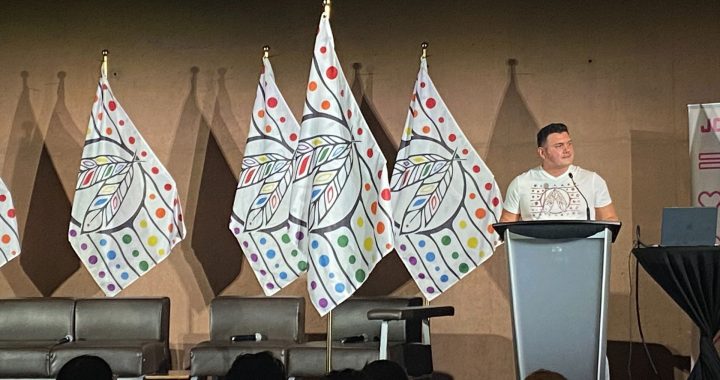Delegates at the First Nations Economic Forum eagerly shared their ideas for economic transformation on a life-sized vision board at the opening of the conference.
Financial literacy, nation-to-nation trade and Indigenous-led policy reform were among the diverse suggestions.
Over two days, First Nations business professionals, leaders and entrepreneurs from coast to coast gathered at the Delta Hotel in Winnipeg at the first-of-its-kind forum to share ideas on economic development.
Harold Calla, the executive chair of the First Nations Financial Management Board, is a part of the team that organized the forum. He said the conference was inspired by the economic growth driven by the establishment of the First Nations Fiscal Management Act.
“More and more First Nations became involved in seeing economic opportunity that was before them and began to pursue those kinds of options,” Calla said. “What we started to see as a result of that is how we could benefit from sharing our experiences, and how we might create a united voice to advance the ideas that we saw that could reduce the impediments and support economic development.”
During the question period, participants brought up the Naawi-Oodena redevelopment project in Winnipeg as a site of economic opportunity for First Nations. In late April, construction of the project, led by the Treaty One Development Corporation, began. Upon completion, it will become the largest urban reserve in the country.
Guy Dumas, a long-time business leader and tribal economies advocate, comes from Mathias Colomb Cree Nation. He travelled to the conference to network and learn how other communities are tackling economic development.
“We have a lot of businesses and enterprises going on right now,” Dumas said. “There’s still a whole lot of room to grow, and I came here to meet some people and talk to some people about what they’re doing in their area because I’m fascinated by all of this.”
“There are some brilliant people here.”
During group discussions, Dumas highlighted policy reform, questions of ownership and procurement of digital assets as key considerations for boosting First Nations economies.
“It’s time for radical change, not just incremental change, but radical change that will create that critical mass that we need throughout Indigenous country to change our economy because I know we have the capacity, we have the skills, we have the know-how, we have everything that we need to create this economy that we desperately, desperately need to have,” Dumas said.
Calla said there will be more of these conferences to come.










